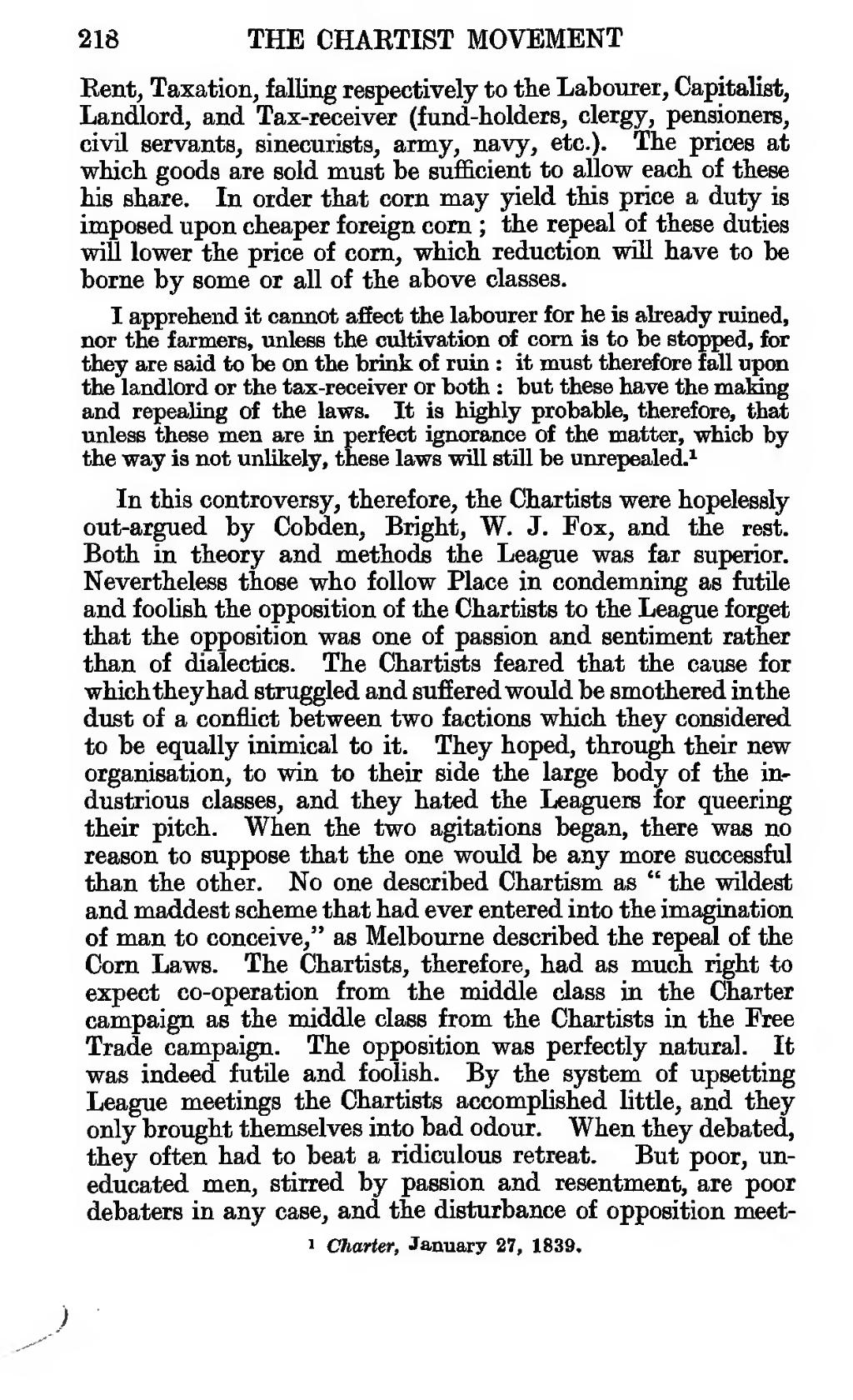Rent, Taxation, falling respectively to the Labourer, Capitalist, Landlord, and Tax-receiver (fund-holders, clergy, pensioners, civil servants, sinecurists, army, navy, etc.). The prices at which goods are sold must be sufficient to allow each of these his share. In order that corn may yield this price a duty is imposed upon cheaper foreign corn; the repeal of these duties will lower the price of corn, which reduction will have to be borne by some or all of the above classes.
I apprehend it cannot affect the labourer for he is already ruined, nor the farmers, unless the cultivation of corn is to be stopped, for they are said to be on the brink of ruin: it must therefore fall upon the landlord or the tax-receiver or both: but these have the making and repealing of the laws. It is highly probable, therefore, that unless these men are in perfect ignorance of the matter, which by the way is not unlikely, these laws will still be unrepealed.[1]
In this controversy, therefore, the Chartists were hopelessly out-argued by Cobden, Bright, W. J. Fox, and the rest. Both in theory and methods the League was far superior. Nevertheless those who follow Place in condemning as futile and foolish the opposition of the Chartists to the League forget that the opposition was one of passion and sentiment rather than of dialectics. The Chartists feared that the cause for which they had struggled and suffered would be smothered in the dust of a conflict between two factions which they considered to be equally inimical to it. They hoped, through their new organisation, to win to their side the large body of the industrious classes, and they hated the Leaguers for queering their pitch. When the two agitations began, there was no reason to suppose that the one would be any more successful than the other. No one described Chartism as "the wildest and maddest scheme that had ever entered into the imagination of man to conceive," as Melbourne described the repeal of the Corn Laws. The Chartists, therefore, had as much right to expect co-operation from the middle class in the Charter campaign as the middle class from the Chartists in the Free Trade campaign. The opposition was perfectly natural. It was indeed futile and foolish. By the system of upsetting League meetings the Chartists accomplished little, and they only brought themselves into bad odour. When they debated, they often had to beat a ridiculous retreat. But poor, uneducated men, stirred by passion and resentment, are poor debaters in any case, and the disturbance of opposition meet-
- ↑ Charter, January 27, 1839.
